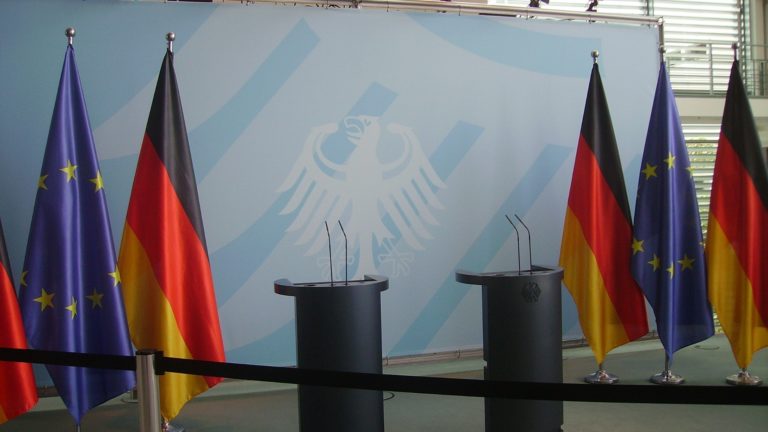Jun 27, 2019 | Srivats Shankar
The UN Secretary-General’s High-Level Panel on Digital Cooperation has prepared its first report on digital cooperation

Jun 27, 2019 | Srivats Shankar
The UN Secretary-General’s High-Level Panel on Digital Cooperation has prepared its first report on digital cooperation
The UN Secretary-General established a high-level panel in July 2018 that aimed to study the potential benefits that could arise out of digital cooperation at an international level with specific focus on achieving the Sustainable Development Goals established by the UN Gen. Assembly in 2015. After conducting a series of stakeholder engagement exercises, the high-level panel has released its first report on digital cooperation in the digital age.
The report has condensed and analyzed the submissions of hundreds of participants, dividing them into a set of policy recommendations that could offer states a potential route to achieve digital sustainability and security. According to the introduction of the report, the potential for technology to erode security and rights is a cause for concern. In order to facilitate cooperation and inclusiveness through technology, there should be a greater access for everyone in order to realize the benefits equitably.
The report focuses on – leaving no one behind, individuals, societies and digital technologies, and mechanisms for global digital cooperation. This is followed by a set of recommendations on how digital cooperation can be achieved keeping in mind these 3 points.
The report highlights number of truths about the current age of digital development, including the future of digital interdependence. The report recommends that technology should be inclusive, human centered and transparent in order to facilitate accessibility in a sustainable manner. They acknowledge that there were differences in opinions among different members of the committee, but broadly they were condensed into these points. This part also includes a “declaration of digital interdependence”, which we felt would be worthwhile reproducing verbatim:
Humanity is still in the foothills of the digital age.
The peaks are yet uncharted, and their promise still untold. But the risks of losing our foothold are apparent: dangerous adventurism among states, exploitative behaviour by companies, regulation that stifles innovation and trade, and an unforgivable failure to realise vast potential for advancing human development.
How we manage the opportunities and risks of rapid technological change will profoundly impact our future and the future of the planet.
We believe that our aspirations and vulnerabilities are deeply interconnected and interdependent; that no one individual, institution, corporation or government alone can or should manage digital developments; and that it is essential that we work through our differences in order to shape our common digital future.
We declare our commitment to building on our shared values and collaborating in new ways to realise a vision of humanity’s future in which affordable and accessible digital technologies are used to enable economic growth and social opportunity, lessen inequality, enhance peace and security, promote environmental sustainability, preserve human agency, advance human rights and meet human needs.
The first major point focuses on how an inclusive digital economy can be achieved, alongside existing systems of work, which may be bolstered by regional and global economic policy cooperation. In terms of an inclusive digital economy, recommendations range from affordable and accessible digital facilities and ask us to the Internet. To be able to access and generate knowledge, whether it is for commercial or social activity needs to be promoted. Financial inclusion includes the ability to digitally manage one’s financial record through a digital identity and e-commerce facilities. They recommend that using technology to facilitate the goal towards the sustainable development goals, including protection of sensitive data, access to data for healthcare and economic activities, needs to form the basis for the future of digital cooperation. By expanding infrastructure for digital facilities, marginalized groups, and education systems, could potentially further the benefits of technology to the entirety of society rather than specific groups.
The second point focuses on how individuals and societies, need to play a role in maintaining human agency and human rights in the digital age. The goal is to understand how human rights are affected, including expression, assembly and privacy operate. Some of the key points that have been highlighted by the report, include human agency and dignity, and the right to privacy. They highlighted that as technology integrates with society and individual living there needs to be a greater degree of trust, to ensure that technology behaves in a predictable fashion in order to avoid is social resilience to the potential benefits of technology. The report also considers the potential ramifications of security, particularly national security, and how states need to be able to effectively address the consequences of cyber attack.
The final point addresses the mechanisms identified for digital cooperation. They highlighted that the international community does not need to and neither should be begin from scratch. By using existing “soft law” and institutionalized bodies, existing frameworks can simply evolve to better fit the requirements of people today. They recommend 3 “architectures” based on which this can take place. The first is internet governance forum plus, essentially a global forum for discussing internet governance and digital policy issues. The second is distributed co-governments, which would require to fill the gaps between existing institutions and systems to create enforcement bodies before appropriate authorities. The final is referred to as a digital commons architecture, wherein spaces like the internet can be seen as international “comments” that belong to society as a whole. They even make reference to the principle of “common heritage of mankind” that is often used to refer to the high seas. Highlighting the role of the United Nations in this, they recommend that it can serve as a convener to set standards and enhance the capacity of nationstates.
The report concludes by making 5 recommendations:
As a whole, the report offers interesting insight and recommendations for states. While its efficacy would likely remain questionable, it does highlight the future of technology and the dangers it poses. This could also serve as a foundation for future discussions in the area of digital cooperation, as international trade, relations and diplomacy become increasingly rooted in the digital world.

Srivats Shankar | May 02, 2022
The European Parliament adopted the recommendations of the Special Committee on Artificial Intelligence in the Digital Age providing a roadmap until the year 2030 regarding its impact on climate change, healthcare, and labor relations

Srivats Shankar | Mar 26, 2022
European Union reaches political agreement to introduce Digital Markets Act.

Maathangi Hariharan | Mar 22, 2021
/diːpfeɪk/
/ˌɑːtɪfɪʃl ˈdʒɛn(ə)r(ə)l ɪnˈtelɪɡəns/
/ˌɑːtɪfɪʃl ɪnˈtelɪɡəns/